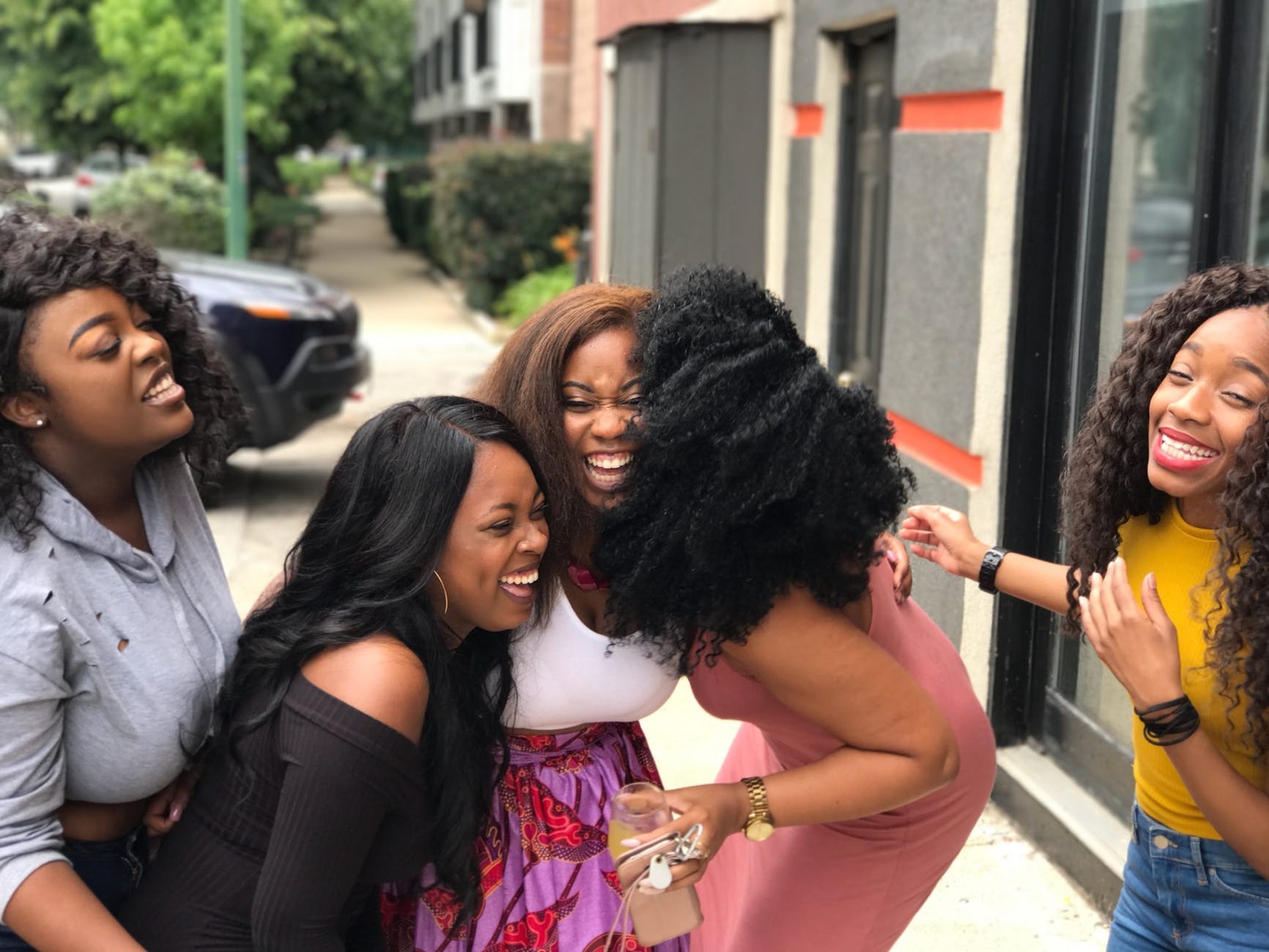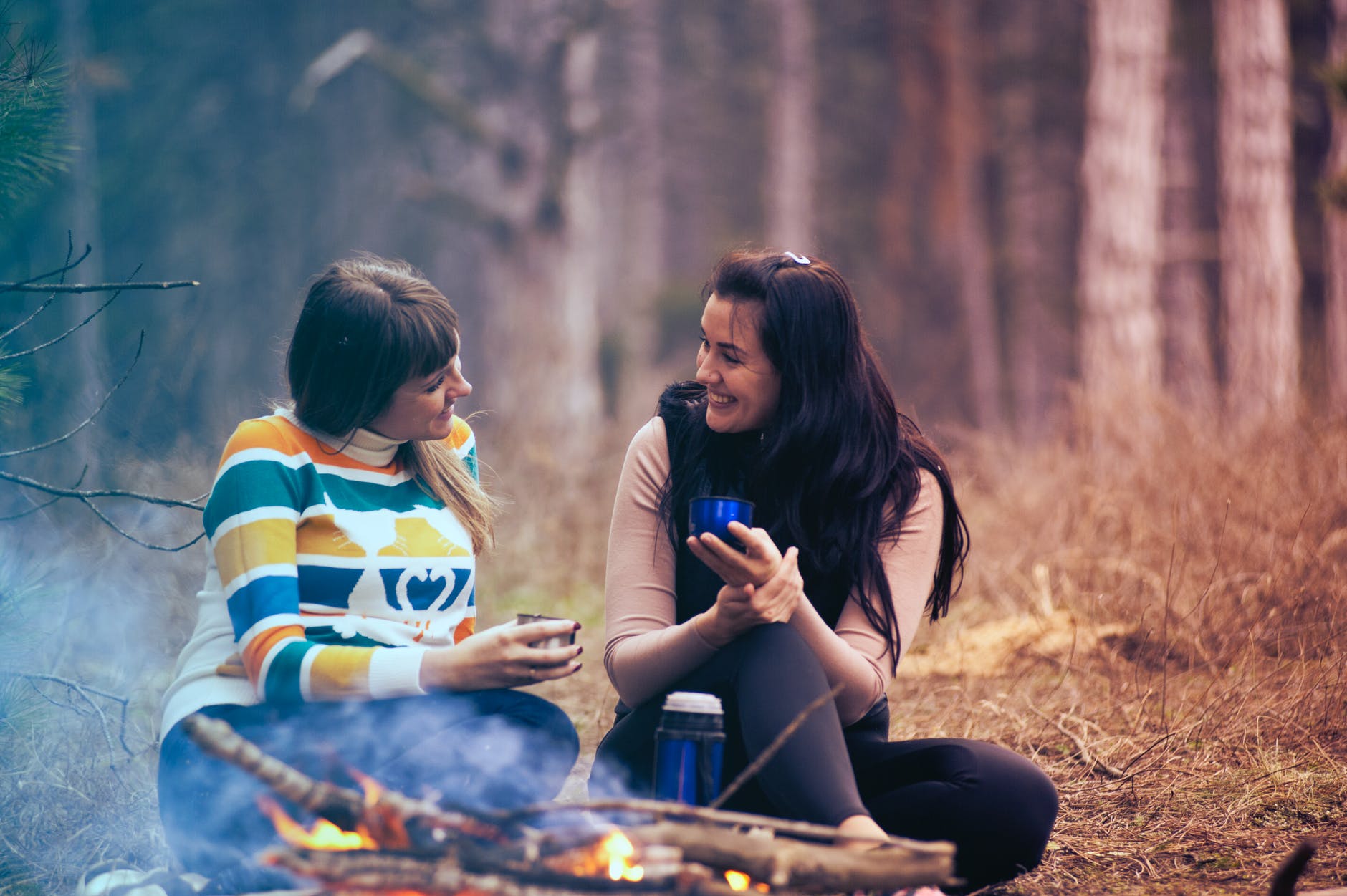You buckle your seat belt and grab the folded, paper compass in front of you. You’re goin’ old school.
Looking to find your destination, there are many possible routes to take. Each path is clearly marked with a blue or green line to indicate direction of travel and most efficient route. You try to follow each one with your finger to see where the path will take you. You know the endpoint, but the travel is part of the decision.
Many factors will influence your journey. Things like length, time and ease of travel will weigh into your choice like a fork at each intersection. Easiness of travel, you have decided, is the best route. Simplicity will allow you enjoy the journey.
Sometimes, relationships in life are just like map reading.
Family & Friends
Personal relationships with friends and family make life happy.1
Research has shown the positive, prophylactic benefits of friendship and relationships include: higher happiness, greater enjoyment, higher levels of self-esteem, higher emotional support, greater psychosocial adjustment, lesser feelings of anxiety, and overall higher quality of life.1
That’s quite the list.
Moreover, like a good dose of preventative medicine, good relationships can even make you physically healthier and help you to live longer.2,3
With such positivity flowing from friendship, and with so many possible paths, here are a few, simple highlighted routes to mapping simplicity in your personal relationships.

Simple Things to Clean Up
Declutter social media
Declutter and unfollow anything that doesn’t make you happy. We talked about that here. Fill your news feeds with only things that you genuinely want to see, it will make your social scroll and your relationships happier.4
End bad relationships
Let those relationships fizzle out. Be kind, be honest, and simply allow those relationships to walk away, wishing them well along their own journey.
Don’t over analyze
Simply observe and identify.
When thinking about your relationships or events, simply name what you know. Acknowledge what you do not know, and identify fact from feeling or opinion. Don’t play judge, simply observe what you find, and identify what is present without any judgement.5
Don’t take anything personally
Other’s actions directed toward you are often a signal of their own inner being. Circumstances don’t always directly come from you personally. We tend to overestimate. Psychologists even have a name for it — Fundamental Attribution Error.6
Perhaps an upset tongue is caused by a difficult or grievous situation at home. Possibly, an outward action could be caused by stress or insecurities you cannot see. People are often too consumed with their own worlds, that most often it has nothing to do with you. Mistakes happen; be kind, be forgiving, and don’t take it personally.
Avoid gossip
Like the plague, or Covid, or a really bad restaurant. Eliminate gossip from your life. What you say about others, says a lot about you. Research has shown that when others hear about the conversation you speak, they give those characteristics to the person doing the talking, NOT about the subject of the conversation.6 Keep yourself free of negative references.



Simple Things to Build Up
The golden rule
The simplest, number-one rule of them all— treat others exactly as you would like to be treated as well.
Always be honest
Have the real conversations, even if they’re tough. Be polite. Be kind. Be honest.
Admit mistakes
Be the one who builds up yourself and others. Admitting mistakes, is tied very closely to being honest. You are human. All humans make mistakes. Admitting those mistakes when they happen and learning them can lead to the strongest bridges in relationship building.
Put the time in
In the friend zone, research has shown that it takes about 50 hours of interaction to move from acquaintance to casual friend. Bump that number up to about 90 hours to move from casual friend to friend.7
Want to move to best-friend territory? That status takes more than 200 hours to qualify as a best friend.7
And such relationships needs maintenance, too. Annual hours are needed to maintain those statuses. So keep it up. Simple things like telephone calls, quick cups of coffee, and Netflix binge sessions can easily make those hours add up.
Be excited for good news
Specifically, be a good cheerleader. Celebrate and share joy with your friends when they tell you good news. Be happy when your friends and family are happy. It will make you happier.8
Enthusiastic responses from a friend scientifically promote positive relationship maintenance and is directly related to happiness.9 When you celebrate, even the smallest victories, you are building a stronger relationship.
Takeaway
Relationship Clean-up
- Declutter social media
- Let the bad relationships walk away
- Don’t over-analyze
- Nothing is personal
- Avoid gossip
Relationship Build-up
- The golden rule
- Honesty is the best policy
- Admit your mistakes
- Put the time in
- Be a cheerleader
CC The text cited in this work is licensed under a Creative Commons Attribution 4.0 International License.
References
King, Alan R., et al. “Friendship and Mental Health Functioning.” The Psychology of Friendship, edited by Mahzad Hojjat and Anne Moyer, Oxford University Press, 2016, pp. 249–66. DOI.org (Crossref), https://doi.org/10.1093/acprof:oso/9780190222024.003.0015.
O’Malley, A. James, and Nicholas A. Christakis. “Longitudinal Analysis of Large Social Networks: Estimating the Effect of Health Traits on Changes in Friendship Ties.” Statistics in Medicine, vol. 30, no. 9, Apr. 2011, pp. 950–64. PubMed Central, https://doi.org/10.1002/sim.4190.
Lawrence, Elizabeth M., et al. “Marital Happiness, Marital Status, Health, and Longevity.” Journal of Happiness Studies, vol. 20, no. 5, June 2019, pp. 1539–61. DOI.org (Crossref), https://doi.org/10.1007/s10902-018-0009-9.
Burke, Moira, and Robert E. Kraut. “The Relationship Between Facebook Use and Well-Being Depends on Communication Type and Tie Strength: FACEBOOK AND WELL-BEING.” Journal of Computer-Mediated Communication, vol. 21, no. 4, July 2016, pp. 265–81. DOI.org (Crossref), https://doi.org/10.1111/jcc4.12162.
Finkelstein-Fox, Lucy, et al. “Valued Living in Daily Experience: Relations with Mindfulness, Meaning, Psychological Flexibility, and Stressors.” Cognitive Therapy and Research, vol. 44, no. 2, Apr. 2020, pp. 300–10. DOI.org (Crossref), https://doi.org/10.1007/s10608-019-10062-7.
Wake Forest University. “What you say about others says a lot about you, research shows.” ScienceDaily. ScienceDaily, 3 August 2010. www.sciencedaily.com/releases/2010/08/100802165441.htm.
Hall, Jeffrey A. “How Many Hours Does It Take to Make a Friend?” Journal of Social and Personal Relationships, vol. 36, no. 4, Apr. 2019, pp. 1278–96. SAGE Journals, https://doi.org/10.1177/0265407518761225.
Demir, Melikşah, et al. “My Friends Are My Estate: Friendship Experiences Mediate the Relationship Between Perceived Responses to Capitalization Attempts and Happiness.” Journal of Happiness Studies, vol. 18, no. 4, Aug. 2017, pp. 1161–90. DOI.org (Crossref), https://doi.org/10.1007/s10902-016-9762-9.
Demir, Melikşah, et al. “Be There For Me and I Will Be There For You: Friendship Maintenance Mediates the Relationship Between Capitalization and Happiness.” Journal of Happiness Studies, vol. 20, no. 2, Feb. 2019, pp. 449–69. DOI.org (Crossref), https://doi.org/10.1007/s10902-017-9957-8.

